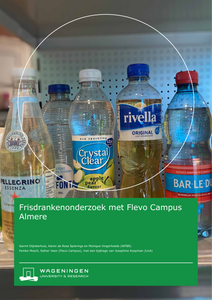Purpose As a step toward more firmly establishing factors to promote retention among younger employees in the hospitality industry, this study aims to focuses on fun in the workplace (fun activities, manager support for fun and coworker socializing) and training climate (organizational support, manager support and job support) as potential antecedents of turnover in a European context. Design/methodology/approach Logistic regression was used to analyze the impact of fun and training climate on turnover with a sample of 902 employees from Belgium, Germany and The Netherlands. Data on fun and training climate were obtained through surveys, which were paired with turnover data from organizational records. Findings With respect to fun in the workplace, group-level manager support for fun and coworker socializing were significantly related to turnover, but not fun activities. With respect to training climate, individual-level job support was significantly related to turnover, but not organizational support and manager support. Research limitations/implications As the data were obtained from employees from one organization, further research would be valuable with additional samples to substantiate the generalizability of the results. Practical implications Given the challenge of turnover, organizations should foster informal aspects of fun in the workplace and learning opportunities to promote retention. Originality/value The study examined the fun–turnover relationship in a context outside of the USA where previous fun–turnover research has been conducted, and it examined fun relative to training climate, which has not been studied heretofore. This study also investigated group- and individual-level effects of both fun and training climate on turnover.
DOCUMENT

Three questions and six elements that help game developers improve the readability of their games, allowing players to reach the 'fun' of the games more quickly.
DOCUMENT
Your game has two types of content: interactive and non-interactive. Telling the difference is almost never at the heart of your game’s ‘fun’ (engaging content). In this talk we’ll have three simple questions you can use to understand why players lose engagement, and six ways in which they (mis)read your worlds At the end, you’ll have a guide to understanding why your player gets lost ... And how to improve the situation.
DOCUMENT
Interventions for older people are often not evaluated and, if evaluated, are not proven successful. Based on a systematic literature review and two qualitative studies about the social needs of older people, an intervention has been developed, implemented, and evaluated. Important social needs that emerged from these studies are connectedness, meaningfulness, and independence.
DOCUMENT

Het onderzoek beschreven in dit rapport is een samenwerking tussen Flevo Campus en WFBR. Flevo Campus wil dat de consumentenkeuze voor frisdranken een meer bewuste en gezondere keuze wordt, niet alleen gedreven door nutriënteninformatie en prijs, maar ook gedreven door smaakbeleving en fun. Dit onderzoek belicht een aantal verschillende aspecten van frisdrankconsumptie door consumenten, gebaseerd op een: 1. inventarisatie van smaakprofielen in gebruik bij andere dranken, 2. literatuurstudie over de perceptie van verschillende soorten frisdrank, 3. historisch onderzoek 'frisdrank als cultureel symbool', 4. consumentenstudie onder 30 consumenten in Almere naar de groepering van verschillende soorten frisdrank, 5. online consumentenstudie naar de groepering van verschillende soorten frisdrank onder 164 consumenten.
MULTIFILE
